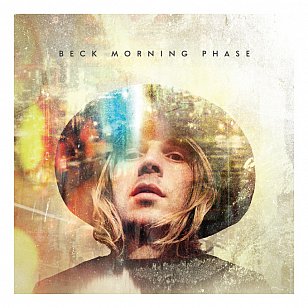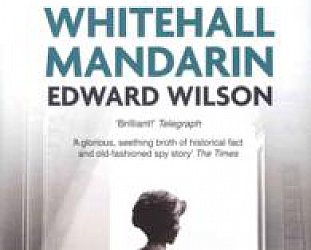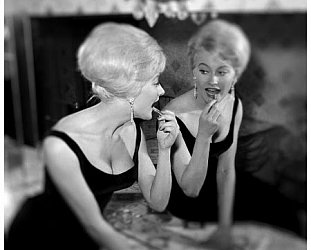Graham Reid | | 1 min read
Beck: Unforgiven

Because few "heard" Beck's 2012 album Song Reader (it was sheet music for material he hadn't recorded), this one comes as the belated follow-up to 2008's well-received Modern Guilt, although he considers Morning Phase a companion to his excellent Sea Change of '02.
That latter album was read as his break-up record (he and his longtime partner split) and although soaked in melancholy it was also gorgeously presented with washes of steel guitar, synths and sometimes dramatic strings arranged by his father David Campbell.
It's at that musical, more than the lyrical, level the often breathtakingly beautiful Morning Phase links to that predecessor.
Following a brief string intro evoking a yawn-into-dawn, this eases itself awake with an acoustic strum, a warm and silver-tone guitar melody then Beck's enchantingly delayed falsetto given widescreen treatment. It sets the tone for a prevailing mood of cloud-blown pastoralism which sometimes moves slower than a stoned sloth at Club Med.
Musical reference points here include the Moody Blues and Beach Boy Brian Wilson at their most elegantly understated (the bookends of opener Morning and closer Waking Light), airy early-Seventies West Coast singer-songwriters (Heart is a Drum, the acoustic Neil Young-like Say Goodbye with banjo), canyon-wide ambient-prog (the capacious Unforgiven) and close-harmony Byrds when the guitar jangle was absent (the air-filled Turn Away).
With orchestration again by his father providing gloriously attractive instrumental passages like shafts of liquid light (Phase) or a sense of impending drama (the portentous opening to Waves), this album enjoys considerable polish.
But beyond the surface allure and aural seduction, Morning Phase presents that promising time of day as full of the unknown, of optimism coupled with uncertainty. So although these songs evoke rested daybreak moods, Beck accepts those contradictory emotions and they seep in here.
Say Goodbye is uneasy (“is it time to go away . . . these are the words you use to say goodbye”), the cello-coloured folk of Turn Away evokes the emotional solitariness of the young Paul Simon (“turn away from the sound of your own voice calling no one, just the silence”) and the flawed escapism of ruralism on Country Down sounds like Neil Young and Gram Parsons ruminating over pedal steel and lonely harmonica: “It's all behind you now, you can lose yourself in some good ground . . . reaching for sunlight, can't see it any more”.
So although this exceptional album closes with the spiritually positive Waking Light (“rest your eyes in the waking light”), morning – however you greet it -- is passing. Night will follow day, as day follows night.
That beautiful certainty steers an enticingly ambiguous album which resonates between head and heart with confidence and a rare beauty.
And sleepers wake.





post a comment